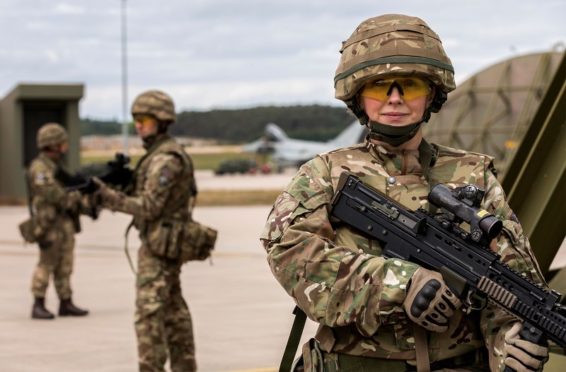Ever been curious about the RAF Reserves? We spoke to four current Reservists at 2622 (Highland) Squadron RAF Lossiemouth to find out what it takes to join.
The coronavirus pandemic has only emphasised what an important resource the RAF Reserves provides.
When the country went into lockdown the RAF Reserves sprung into action, helping the UK Government by conducting mobile testing in support of COVID-19.
RAF Reserves stepped forward to support communities and their country in times of need. This also gave the Reservists paid employment during furlough.
Get involved
If you’re aged 18-54 and looking for a challenge, joining 2622 (H) Sqn RAF Lossiemouth could prove a life-changing experience.
As well as supporting your country, you’ll also get to travel and take advantage of unique professional development opportunities. From specialist courses on leadership, teamwork and communication to adventure training, it’s all designed to maximise your potential – and it’ll have a positive impact on your civilian workplace, too.
RAF Reserves work part-time with the contract requiring 27 days a year, so it can fit around your other life commitments.
Whether you’re looking to join the RAF full-time or not, it’s a great opportunity.
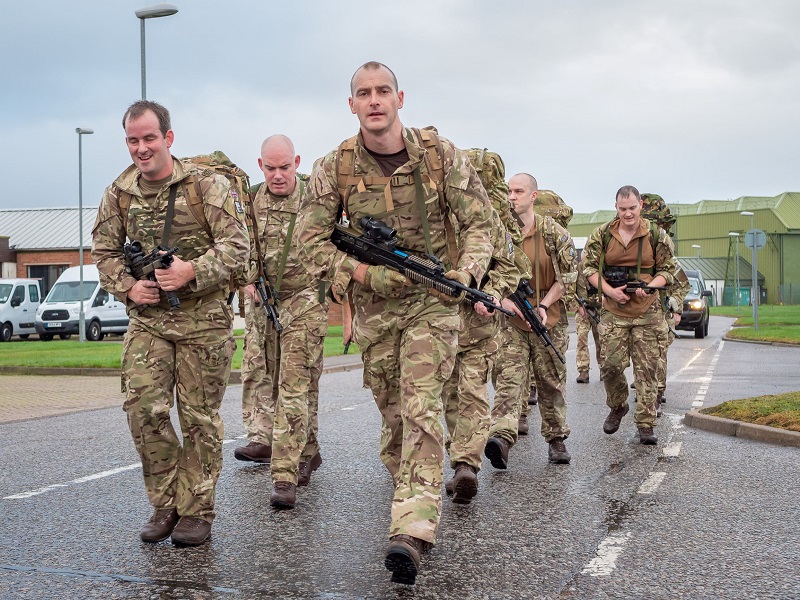
Why RAF Lossiemouth?
RAF Lossiemouth is an exciting place to start your Reserves journey – and now’s the ideal time. It’s undergoing a substantial airfield development programme and will become one of the premier bases in the RAF, operating Typhoon combat aircraft and the new P8 Poseidon maritime patrol aircraft in defence of the UK and abroad.
2622 (Highland) Squadron is the only RAF Reserve Squadron on a high profile, front line airbase in Scotland, protecting the airbase, and personnel and aircraft within, at home or abroad.
And recently, it became the first RAF Reserve Regiment Sqn to welcome a qualified female “badged Gunner” into the Reserves!
Below, Reserves at RAF Lossiemouth talk about their experiences.
“It’s probably one of the most fun things I’ve ever done”
Scientist and mum-of-three Alice Savage, 47, has always been interested in aviation. But it wasn’t until spotting an RAF Reserves leaflet at Montrose’s aviation museum – and realising they accepted recruits her age – that she decided to join.
After passing her fitness test in August, Alice is now a Trainee Reserve at RAF Lossiemouth.
Although balancing her new role with other responsibilities is a commitment, it’s boosting all areas of scientist Alice’s life – including her demanding job.
“I definitely think it’s had a positive impact on my job because I feel more confident, resilient and physically strong, so I go in with a new sense of enthusiasm and mental strength and focus,” says Alice.
Having experienced the friendly, inclusive and supportive environment of RAF Lossiemouth, Alice would recommend joining the Reserves – especially women and those nearing the upper age limit (54).
She adds: “I’ve really surprised myself. I think if I can do it, then it shows that it’s more possible than you think with a positive mental attitude. It’s probably one of the most fun things I’ve ever done!”
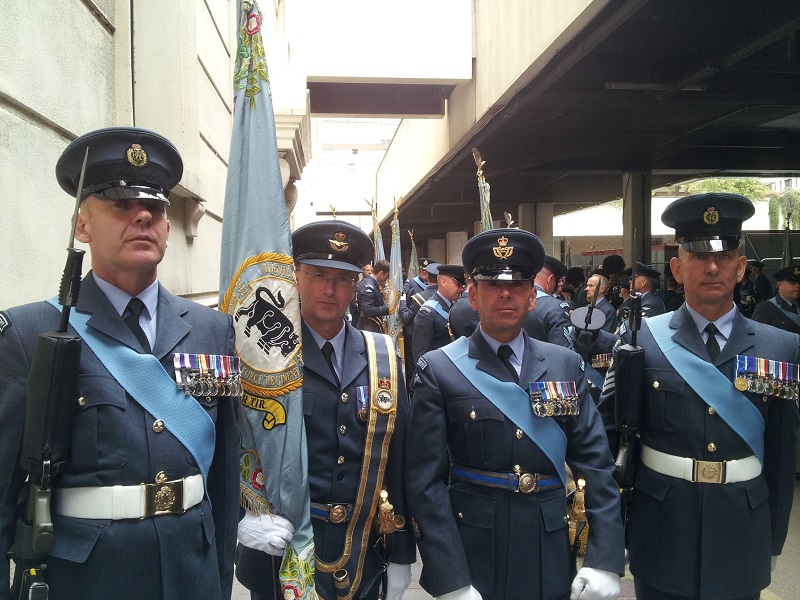
“I love being a reservist. It’s very rewarding.”
The RAF was LB’s back-up plan if his love of aviation didn’t translate into a career. Happily, it did! But reducing his hours as an airline pilot and joining the RAF Reserves part-time has given him a unique opportunity to pursue both interests.
A supportive employer and family has made balancing both easier. He adds: “I love being a reservist. It’s very rewarding. I won’t lie and say you don’t have some days where you think why am I doing this! But that is also part of being a reservist, it’s a great challenge.”
In fact, being a Reservist has exceeded his expectations since joining 14 months ago.
“The recent work has been very rewarding,” he explains. “This involved military aid to civilian authorities in the form of reserve personal operating mobile Covid testing units, which we then helped to handover to civilians to continue this much needed and vital service at this time.”
LB enjoys the financial perks as well as the support and comradery of the RAF Reserves.
He says: “You will learn some valuable skills that you can transfer into your civilian life. You will have a lot of laughs with your colleagues. Through all this you will be supported by a fantastic recruitment team who will get you through your training, and once released, this support continues.”
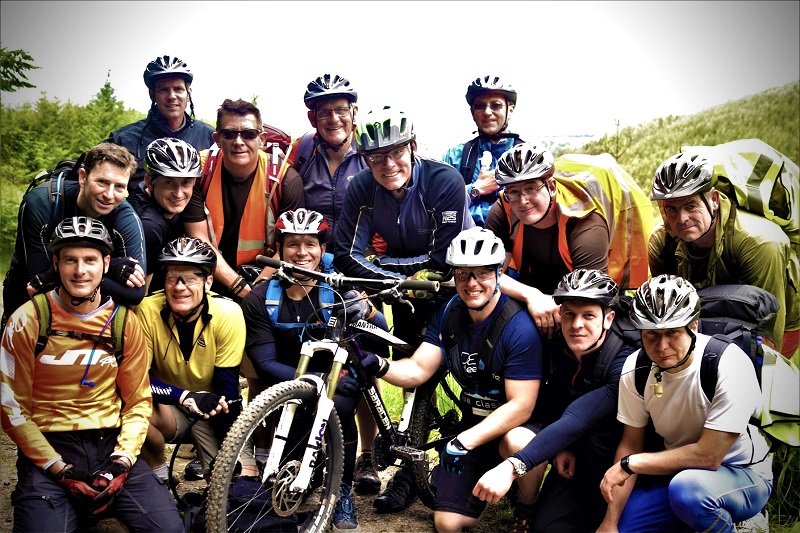
“It’s like a family, basically”
A conversation with a family friend last Christmas led Caitlin Shanks, 19, to join the RAF Reserves. Her experiences with the Army Cadets when she was younger helped her find her feet, although the recruitment process – delayed by the pandemic – was still an enjoyable challenge.
And happily, she found lots of help along the way. She says: “We met some of the people in the Reserves during the training, and they’re all happy to speak to you – it’s like a family, basically. You know that everyone is ok and you feel ok to be yourself. They’re all very welcoming and nice.”
She’s now balancing her reservist role with a full-time hospitality job. “It’s fine because they give you a good six months or so in advance, so you can book it off and then, you’re only taking two days out of your month, each month, to do the training,” she explains.
Although she mentions that it’s not for everyone, Caitlin advises anyone curious to go for it. She adds: “No matter how long it takes you – if it takes two months or more than a year, they’re going to be there and they’re going to support you through it.”
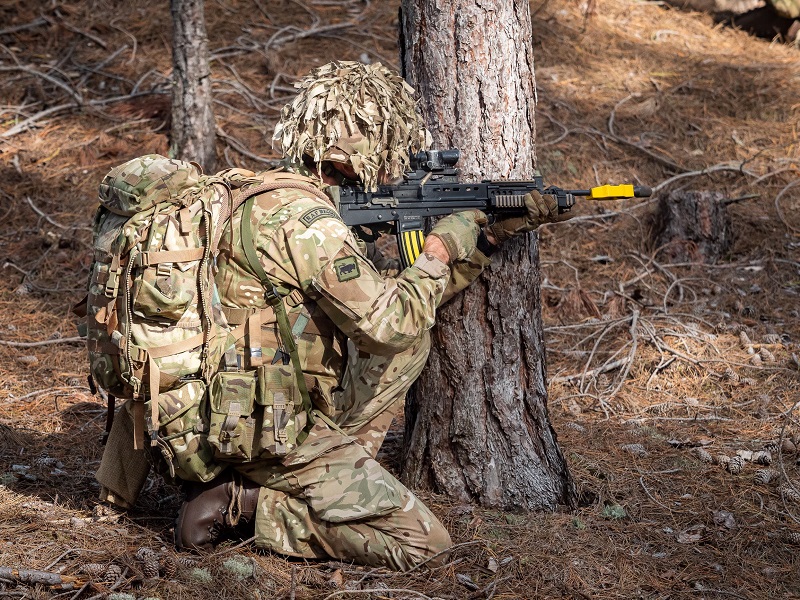
“It is an organisation where you feel valued”
After nine years in the Regular Royal Air Force, Frank Kelly, 33, decided to join RAF Lossiemouth as a Reserve five years ago.
“The initial interview for commissioning was challenging and I found it a real test, but the recruiting staff were supportive and I felt well prepared for it,” says ex-regular Frank.
In his personal life, support has also come from his understanding wife and his employer, who has signed the Armed Forces Covenant (a public promise of support to those who serve).
“Sometimes it can be difficult when you have had a hard week at work to think about spending the weekend training, but I find it is a nice escape from the stresses of my civilian job,” he adds.
He is enjoying RAF Reserve opportunities, like representing the RAF in Cross Country Skiing.
He also adds: “Some of the training courses I have completed with the Reserves have had a real benefit in my civilian life and have let me develop new skills.”
If you’re interested, Frank recommends simply getting in touch: “The recruiting staff are happy to take the time to answer any questions you may have. There are some great experiences with the RAF Reserves. It is an organisation where you feel valued and always get back as much as you put in.”
Find out more about joining 2622 (H) Sqn or RAF Regiment Roles.
You can also get in touch by phone on 01343 810 776 or email at 2622AUX-Recruiting@mod.gov.uk
